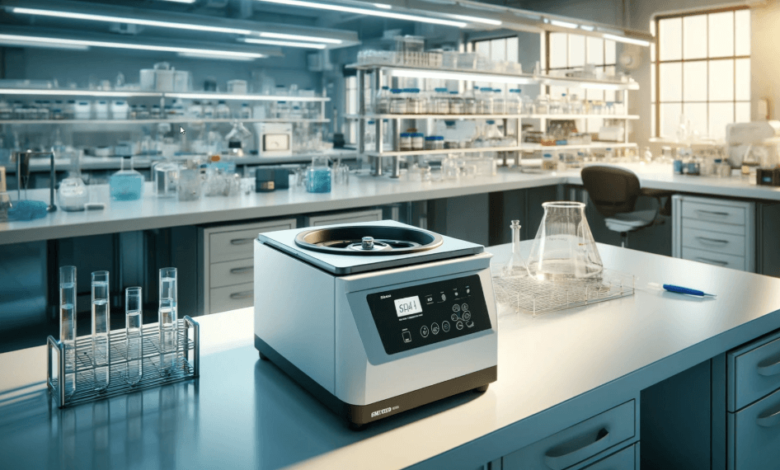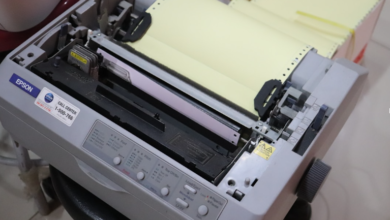Choosing the Right Lab Centrifuge Manufacturer: A Comprehensive Guide for Laboratories

In today’s fast-paced scientific landscape, choosing the right equipment is as crucial as the research itself. One of the most essential pieces of machinery in any biology, chemistry, or clinical lab is the lab centrifuge. These devices are pivotal for separating mixtures, isolating components, and conducting high-precision analyses. But what truly defines the quality, longevity, and performance of this critical device is the lab centrifuge manufacturer behind it.
With a growing number of brands entering the market, how do you know which lab centrifuge manufacturer will deliver the reliability, innovation, and support your lab demands? This article explores the key criteria to consider, the importance of working with a reputable manufacturer, and how this choice can impact your scientific workflow for years to come.
The Importance of Selecting a Trusted Lab Centrifuge Manufacturer
When investing in laboratory equipment, you’re not just buying a device—you’re establishing a long-term relationship with a provider. A trusted lab centrifuge manufacturer ensures:
- Precision Engineering: Equipment designed with accuracy and scientific rigor in mind.
- Compliance: Adherence to international standards such as CE, ISO, FDA, or GMP certification.
- After-Sales Support: Access to spare parts, warranties, technical assistance, and training.
- Durability: Machines built to withstand frequent use over extended periods.
- Safety: Mechanisms to protect users and preserve sample integrity.
Choosing the right manufacturer minimizes downtime, improves operational efficiency, and ensures your research remains uncompromised.
See also: Revolutionizing Windows: Cutting-Edge Technologies for Modern Homes
Key Features to Expect from a Top Lab Centrifuge Manufacturer
When evaluating any lab centrifuge manufacturer, look beyond flashy marketing. Focus on features that matter for your lab’s workflow:
1. Diverse Product Range
Manufacturers should offer a comprehensive range of centrifuges such as:
- Microcentrifuges
- Benchtop centrifuges
- Refrigerated models
- High-speed centrifuges
- Hematocrit and clinical variants
This variety ensures solutions for research labs, hospitals, industrial settings, and academic institutions alike.
2. Customization Options
Not all labs are the same. Top-tier manufacturers provide customizable options for:
- Rotor types (fixed-angle, swing-bucket, vertical)
- Tube sizes and adapters
- Speed and time controls
- Temperature control (for sensitive samples)
3. User-Friendly Interface
A good lab centrifuge manufacturer will prioritize user experience with digital interfaces, programmable settings, imbalance detection, and error alerts. Touchscreen panels and multi-language options also enhance usability.
4. Compliance and Certification
Any serious manufacturer will have certifications to prove their equipment meets international regulatory standards, including:
- ISO 9001
- CE marking (Europe)
- UL listing (USA)
- GMP compliance (pharmaceutical applications)
Evaluating the Manufacturer’s Reputation
Before settling on a lab centrifuge manufacturer research their track record:
🛠 Quality of Craftsmanship
Inspect the build quality and performance consistency. Brands with long-standing reputations tend to invest in superior materials and rigorous testing protocols.
🌍 Global Reach and Distribution
Do they operate internationally? A global network ensures better availability of service centers, parts, and accessories.
📞 Technical Support and Training
Reliable after-sales support is essential. Whether it’s troubleshooting, part replacement, or user training, manufacturers should have robust systems in place.
📈 Customer Reviews and Case Studies
Seek feedback from labs similar to yours. What’s their experience with the manufacturer’s products? Have the centrifuges performed reliably over time?
Why Origin Matters: Local vs. International Lab Centrifuge Manufacturers
The origin of your lab centrifuge manufacturer can influence costs, lead times, and support availability:
🇺🇸 U.S. and European Manufacturers
Pros:
- High regulatory standards
- Established reputations
- Robust warranties
Cons:
- Higher cost
- Longer delivery times
🇨🇳 Asian Manufacturers (especially China)
Pros:
- Competitive pricing
- Fast shipping within Asia
- Rapid innovation and scalability
Cons:
- Quality can vary—vet manufacturers carefully
- May lack detailed manuals or global certifications (unless specified)
That said, companies like Drawell Scientific in China are closing the quality gap, offering advanced technology with competitive pricing and international certifications.
Top Questions to Ask a Lab Centrifuge Manufacturer
To make an informed decision, ask manufacturers the following:
- What is the maximum RPM and RCF supported?
- What rotor types and tube capacities are compatible?
- Does the model offer temperature control?
- What are the safety features in place?
- What certifications does the equipment carry?
- What is the average lifespan and maintenance schedule?
- Are spare parts and accessories readily available?
- Is there a warranty or service agreement?
These questions help filter out manufacturers that only focus on sales from those invested in customer success.
Applications That Depend on Quality Lab Centrifuges
The reliability of your centrifuge can affect multiple lab applications, including:
- Blood Sample Separation – in clinical labs and hospitals.
- DNA/RNA Isolation – in genetic and molecular biology research.
- Protein Purification – for pharmaceutical development.
- Microbial Pelleting – for microbiology and fermentation studies.
- Urine and Saliva Testing – for diagnostics.
- Environmental Sample Processing – water, soil, or waste analysis.
Each of these applications requires precision, consistency, and reliability—features best guaranteed by a trusted lab centrifuge manufacturer.
Red Flags: What to Avoid When Choosing a Manufacturer
While many companies claim to offer world-class lab equipment, not all live up to the promise. Watch out for:
- Lack of Transparency: No technical datasheets, vague certifications.
- Overly Cheap Pricing: Unsustainably low prices often come with hidden quality compromises.
- Poor Reviews: Consistent complaints about motor failure, rotor imbalance, or customer service issues.
- No Return Policy: Trusted manufacturers will back their products with a return or warranty policy.
Making the Final Choice
After evaluating all the technical, functional, and service-oriented aspects, shortlist two or three lab centrifuge manufacturers that meet your lab’s specific needs. Request quotes, compare delivery timelines, and consider potential partnerships for future equipment needs.
Manufacturers who are invested in your success will guide you through model selection, provide training, and offer support long after the initial sale.
Conclusion
In scientific research and diagnostics, every variable counts—and that includes the quality of your laboratory equipment. A well-built centrifuge can ensure sample integrity, improve efficiency, and support groundbreaking discoveries. That’s why choosing a reputable lab centrifuge manufacturer is not just a purchasing decision—it’s a long-term investment in the success of your laboratory.
As the industry grows and technology evolves, partnering with the right manufacturer ensures you stay ahead of the curve, backed by innovation, support, and scientific trust.






